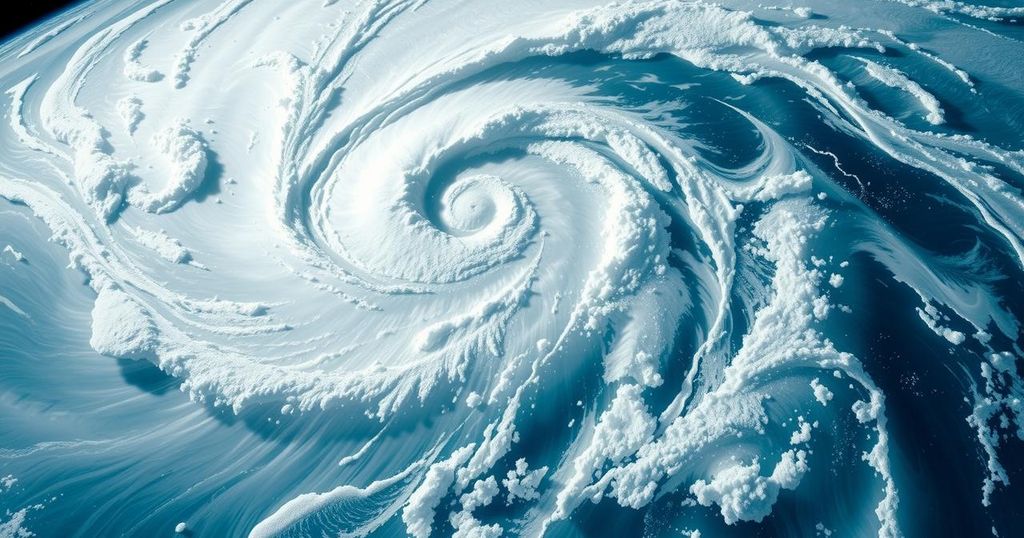Climate Change Intensifies Cyclone Chido, Scientists Reveal
Imperial College London’s preliminary analysis suggests Cyclone Chido was intensified by climate change, with its strength being 40% more likely in 2024 compared to pre-industrial times. As the most destructive cyclone to hit Mayotte in nearly a century, Chido caused extensive damage. Wind speed increases due to climate change have also been modeled, indicating a direct correlation between warmer climates and intensified tropical storms.
Recent research conducted by scientists from Imperial College London indicates that climate change significantly intensified Cyclone Chido as it approached Mayotte in the Indian Ocean. The study reveals that cyclones of similar magnitude are now 40 percent more likely to occur in the warmer climate of 2024 than during the pre-industrial era. Cyclone Chido, categorized as a category four storm, caused unprecedented devastation in Mayotte, destroying makeshift homes and posing a potential rise in the death toll to the thousands. The study utilized advanced computer modeling to estimate that wind speeds in the area where Chido made landfall increased by 3 miles per second due to climate change. Although not conclusively attributed to global warming by France’s weather service, experts highlight that elevated ocean temperatures have escalated the violence of such storms. The current climate is recorded as approximately 1.3 degrees Celsius warmer than in pre-industrial times, further contributing to more extreme and frequent weather events.
Additionally, the research emphasizes how warmer air holds more water vapor and leads to greater evaporation from oceans, providing the necessary conditions to amplify tropical storm activity. The trajectory of Cyclone Chido, along with its intensity, highlights the implications of climate change on natural disasters.
The increasing severity and frequency of tropical storms, such as Cyclone Chido, are directly linked to climate change, which is driving ocean temperatures higher and allowing more atmospheric moisture. This phenomenon results in storms that are not only stronger but more chaotic, posing significant threats to vulnerable regions. As global temperatures continue to rise, the probability of cyclones achieving higher categories increases accordingly, underscoring the pressing need for initiatives aimed at climate mitigation and adaptation. The role of advanced computational modeling in assessing these climate impacts plays a crucial part in understanding and responding to these natural disasters more effectively.
In summary, the evaluation of Cyclone Chido by Imperial College London underscores the undeniable connection between escalating climate change and the intensity of tropical storms. The research highlights that such storms are more likely to occur with increased severity in our warming world, representing a critical challenge for affected regions. As global temperatures continue to rise, urgent action is required to address these climatic shifts and their devastating impacts on communities, particularly those most vulnerable such as Mayotte.
Original Source: www.france24.com




Post Comment